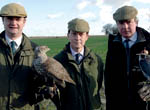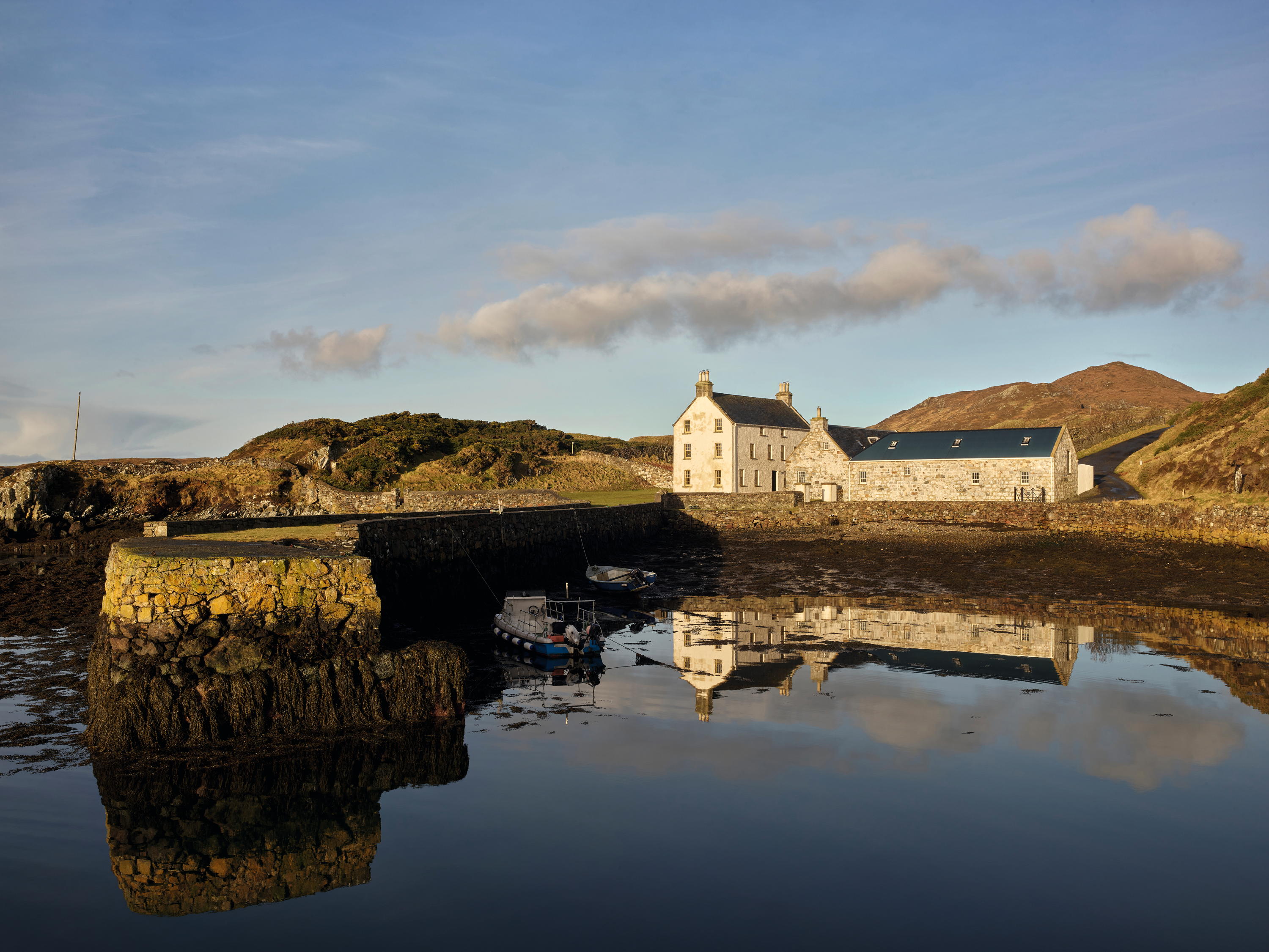The London Macnab
Three intrepid members of the Country Life team attempt the ultimate fieldsports challenge within the M25


London's Goring hotel is used to unusual sights. It's had foxhounds on its lawn, in the heart of SW1, and last St George's Day, bemused neighbours witnessed St George Goring slaying a smoke-belching dragon. So the sight of three tweed-clad sportsmen hailing a cab at 6am on the front steps last week, armed with rods, shooting equipment and provisions, may have startled a few early risers in Beeston Place, but for the staff, it was just another day at one of the capital's last family owned hotels. It's the kind of place where you dream up foolhardy escapades and seemingly impossible challenges (it's still one of Lady Thatcher's favourite hotels), and it was because of a long lunch with plenty of claret several months ago, that the Editor, Features Editor and fishing correspondent of this magazine found themselves on a mission that seemed crazily ambitious in the cold light of day. Why not complete a London Macnab, we had asked ourselves with Bordeaux-fuelled bravado. In John Buchan's original novel, three friends, after a similarly good night in their club, set out to catch a salmon, and stalk and kill two stags, all within a Scottish day.
Salmon are scarce within the M25, but, by Tube, you can get to places to shoot pigeon, use birds of prey to swoop on partridge or hare, and to catch a pike. In our case, we felt it more practical to employ the services of London cabbie Dave Coombs to get us about, as time was critical. Would we be able to return to the Goring before dark with enough game for the chef to prepare our supper? Dawn was just breaking as we drew up in a farmyard a few wing flaps from the M25 junction with the M11 and a short walk from Epping Forest Tube station. Gary Green was waiting to transport us in a 1954 Land Rover to our pre-prepared hide. The pigeon magnet, a battery-operated whirling mechanism with two dead pigeons on the end of each arm, was started, and we made ourselves as comfortable as possible as we hid behind the camouflage netting. We didn't have to wait long, gazing out on the pastoral scene with skylark twittering overhead.
Suddenly, a curious flock of pigeons, that had approached unseen from the hedge behind us, was swirling about in front. Up went the fishing correspondent. Bang, bang, and two grey forms tumbled to earth. The Editor and I gulped. The pressure was on. The Editor also got on the scorecard early on, but my first success would have impressed a pillow manufacturer more than a purist; the bird was coming straight towards me, and I had to take my chance. Once the snowstorm of feathers had cleared, it was time to push on to our next objective. Next up was Alan Greenhalgh and Lee Rush with their falcons and goshawk. Chairman and secretary of the southern region of the British Falconers' Club respectively, their enthusiasm for this skilful sport was contagious. Lee set the pace, marching briskly round a large ploughed field, from which you could see the top of Canary Wharf. But today, we weren't hunting out that flashing light, but the brown hare.
With guidance from the gamekeeper of this gratifyingly traditional estate (cows in the barn, game crops in suitable spots), and the assistance of two pointers, it wasn't long before one of these delightful creatures sprang up from the cover of a muddy furrow and headed for the field edge. Gossy made several game attempts, swooping after the quarry like a passenger jet seeking clearance to land. But, at the moment critique, she would have a change of heart, and finally flew into a tall tree, where she decided that she'd had enough. Time was running out, so in a bid to redeem the situation, one of the gyrfalcon partridge crosses was released to see if she could strike a partridge. Circling high up above our heads, she waited until one of these game birds showed itself. Suddenly, she spotted one a couple of fields away, and, putting her wings back, began a bullet like descent, like Superman to the rescue. We lost sight of her as she roared over a hedge, but a few seconds later, she flipped up and swooped round. We couldn t tell if the target had been struck, but she didn't return to the scene, and it seemed as if we'd just missed out again. Time was pushing on, and we were already behind schedule.
Waiting for us at Pen Ponds in Richmond Park was a man we desperately needed. As well as being the ballet critic for The Observer, Luke Jennings knows
more than most about catching fish, and he once held the enviable title of pike correspondent for the Evening Standard. He had kit laid out and waiting: spinners, deadbait, different kinds of rods, large landing nets and gallons of optimism. He'd hooked one earlier on in the day, but was unable to reel it in. As the sun set and the deadline approached for the closure of the park gates, we realised that time was not on our side. As Dave drove us back into the heart of London, we reflected that, with more time, we might have been successful, but a January day is not long. We handed our pigeon to the head chef, but he'd been wise enough to plan for glorious failure: that night, we feasted on jugged hare, pigeon breasts, roast partridge, and even pheasant.
Sign up for the Country Life Newsletter
Exquisite houses, the beauty of Nature, and how to get the most from your life, straight to your inbox.
Country Life is unlike any other magazine: the only glossy weekly on the newsstand and the only magazine that has been guest-edited by HRH The King not once, but twice. It is a celebration of modern rural life and all its diverse joys and pleasures — that was first published in Queen Victoria's Diamond Jubilee year. Our eclectic mixture of witty and informative content — from the most up-to-date property news and commentary and a coveted glimpse inside some of the UK's best houses and gardens, to gardening, the arts and interior design, written by experts in their field — still cannot be found in print or online, anywhere else.
-
 Rodel House: The Georgian marvel in the heart of the Outer Hebrides
Rodel House: The Georgian marvel in the heart of the Outer HebridesAn improving landlord in the Outer Hebrides created a remote Georgian house that has just undergone a stylish, but unpretentious remodelling, as Mary Miers reports. Photographs by Paul Highnam for Country Life.
By Mary Miers
-
 380 acres and 90 bedrooms on the £25m private island being sold by one of Britain's top music producers
380 acres and 90 bedrooms on the £25m private island being sold by one of Britain's top music producersStormzy, Rihanna and the Rolling Stones are just a part of the story at Osea Island, a dot on the map in the seas off Essex.
By Lotte Brundle